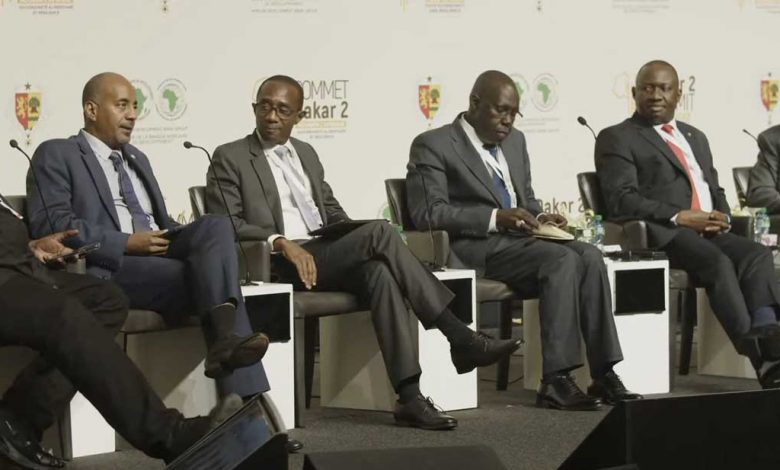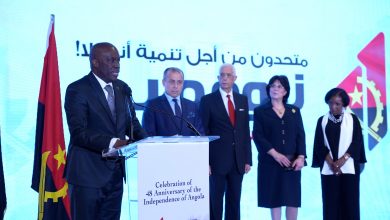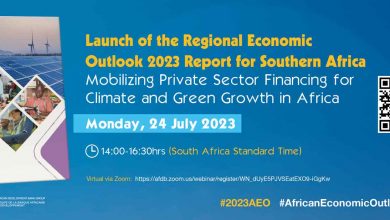Unlock the impact potential of agricultural SMEs in Africa, experts urge at Dakar 2 Food summit | African Development Bank

Diplomat.Today
The African Development Bank
2023-02-10 00:00:00
——————————————-
LR: Allan Kasujja, moderator; Admassu Tadesse, President and CEO, East and South Africa, Trade and Development Bank; Danladi Verheijen, co-founder and CEO, Verod Capital; Mr. Malick Ndiaye, CEO, Agricultural Bank; Dr. Olagunju Ashimolowo, Vice President, Operations, ECOWAS Bank for Investment and Development; Mr. Wagner Albuquerque de Almeida, Global Director for Manufacturing, Agribusiness and Services, International Finance Corporation.
Global experts gathered at a panel session at the second International Summit on Food Production in Dakar called for accelerated ways to close the financial gap in agriculture and address barriers to the growing financial market for small and medium-sized agricultural enterprises (SMEs).
The discussions come on the back of supply chain disruptions caused by the COVID-19 pandemic, the war in Ukraine, rising inflation, high commodity prices that have led to increased food and nutrition insecurity.
The session, titled, Closing the funding gap was moderated by Alan Kasujja, Presenter, BBC World Service.
At the summit, the African Development Bank Group and the Government of Canada announced the creation of a new special fund to support African small and medium-sized enterprises (SMEs) in the agricultural sector.
The Catalytic Financing Mechanism for Agri-Food SMEs aims to catalyze investments for SMEs in agriculture and reduce risks. It will also strengthen agricultural value chains and improve food security across the continent.
The experts are urging lenders to explore blended finance to make agricultural transactions riskier, lower transaction costs and attract private financing by improving risk-return ratios.
“A key industry challenge is understanding the risks… We need blended finance for things that are riskier things to do,” said Wagner Albuquerque de Almeida, Global Director for Manufacturing, Agribusiness and Services at the International Finance Corporation (IFC).
Admassu Tadesse, head of the Trade and Development Bank, said financing agriculture is not as risky as many believe. “It depends on which part of the cycle. We are focusing on the rear, where the risk is low,” he said.
The largest sources of financing for agri-SMEs are local commercial banks. However, banks prefer to invest in larger, more mature companies, such as established aggregators and local processors that dominate the regional or national market, Tadesse noted.
Danladi Verheijen, co-founder and CEO of Verod Capital, a private equity investment company, stressed that agriculture should be seen as an investment opportunity.
“Investors want to get in where there are high returns,” he said. He noted that one of the challenges in agriculture is making the scale of companies attractive enough for financial intermediaries to do business with.
Panelists also noted that food value chains in Africa are not currently set up to maximize the potential of our food system. This growing awareness has prompted players in the African agricultural sector to seek practical solutions to restore the continent’s food security.
There is huge potential to create production and trade links, as well as synergies between different actors throughout the agribusiness value chain: producers, processors and exporters.
“All elements must come together. You have to have an ‘airbag’ if something goes wrong,” says Dr Heike Harmgart, Managing Director for the Southern and Eastern Mediterranean, European Bank for Reconstruction and Development.
Speakers also urged farmers and agri-SMEs to “regain their power” through cooperatives. “We need to help them organize to create clusters and cooperatives and create a sense of professionalization in the industry,” said Albuquerque de Almeida
In agreement with Almeida, Dr. Olagunju Ashimolowo, the Vice President, Operations for ECOWAS Bank for Investment and Development urges governments to identify cooperatives to manage farmers. He also asked ranchers to properly channel the money in a way that would be “attractive and bankable.”
The Digital Agriculture Annex of the African Development Bank’s Africa Adaptation Acceleration Program (AAAP) deploys digital technologies targeting smallholders, agro-SMEs and value chain actors to train actors using digital technologies in agricultural practices.
——————————————-



